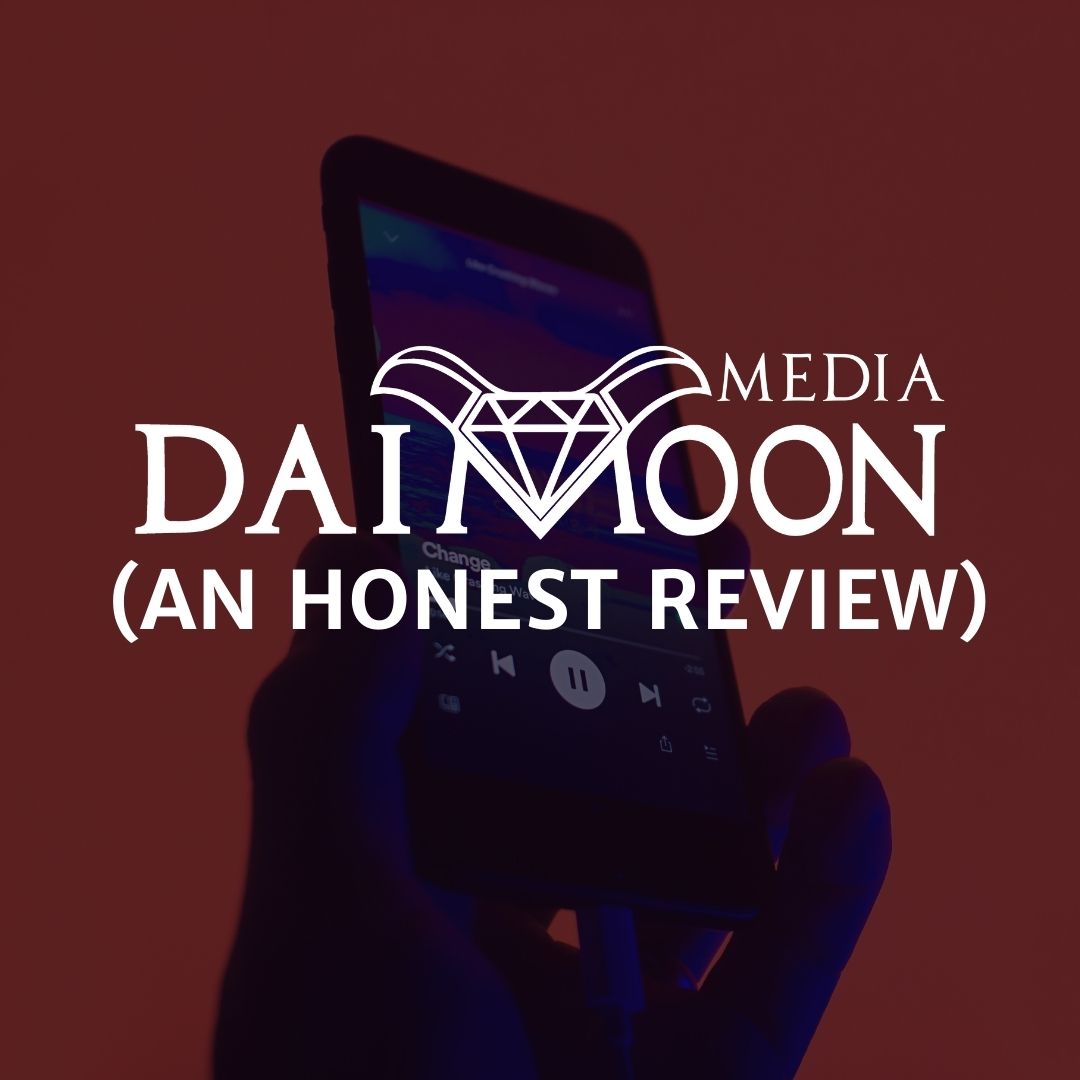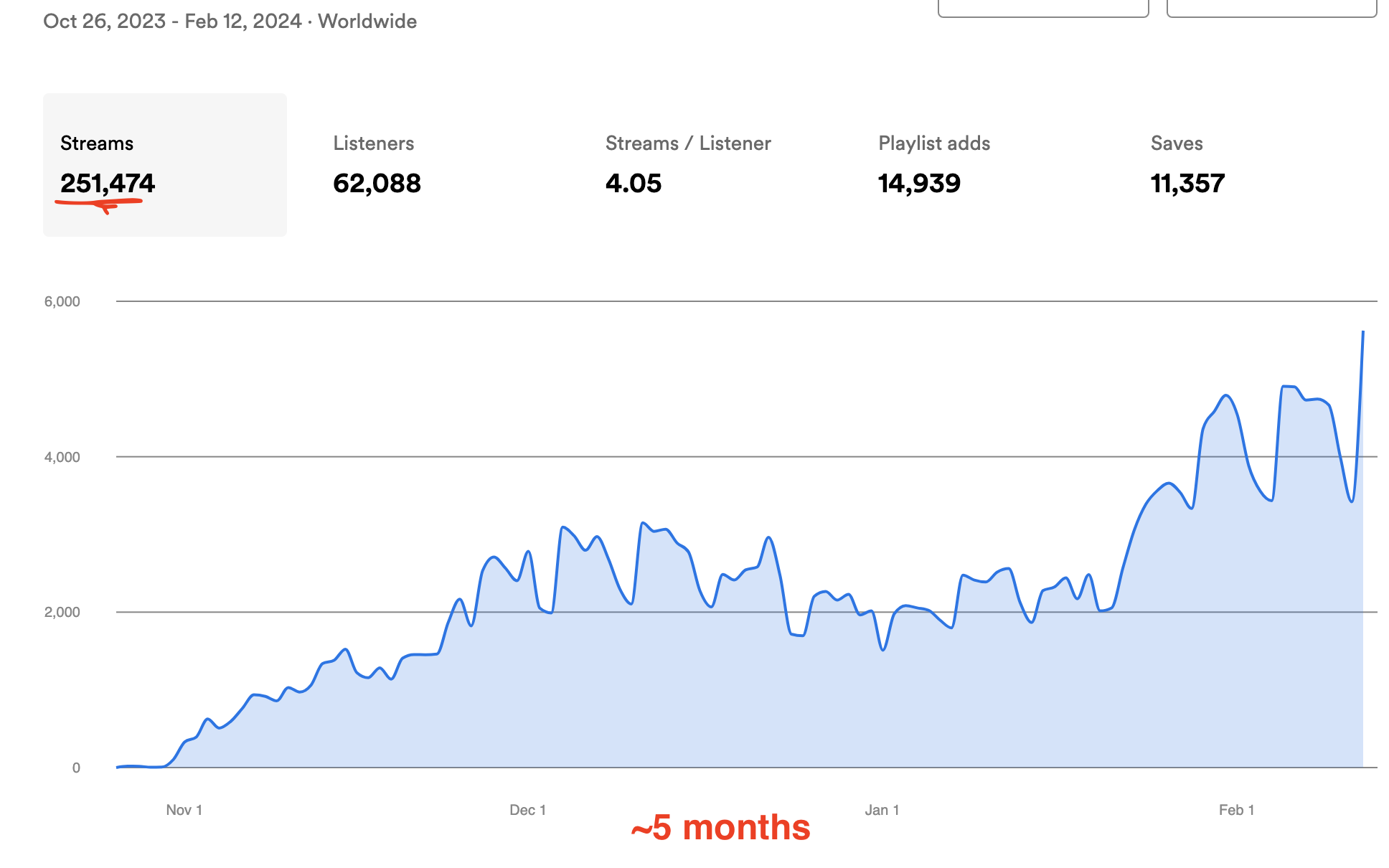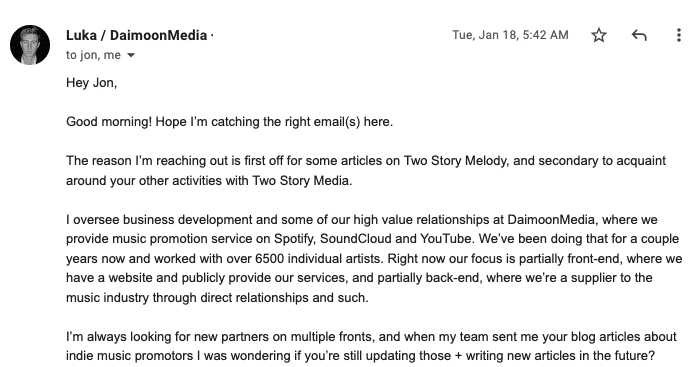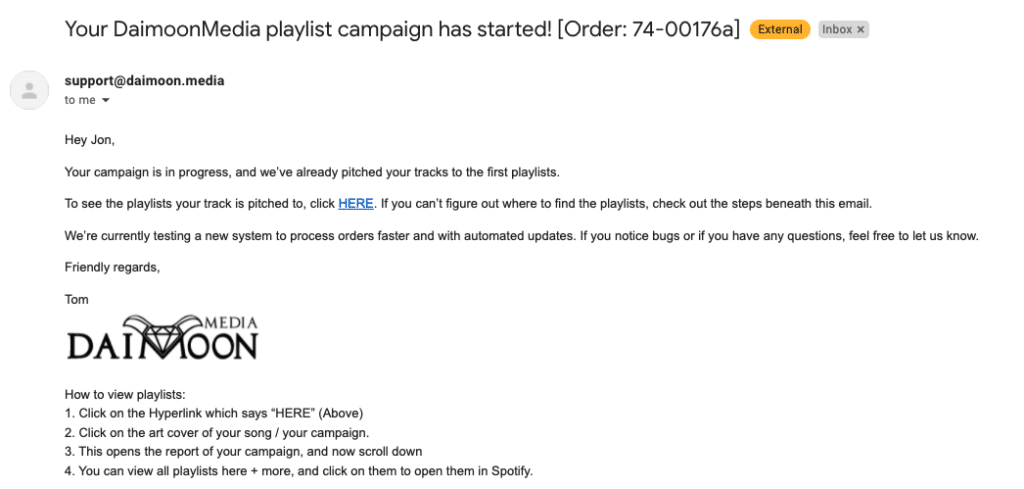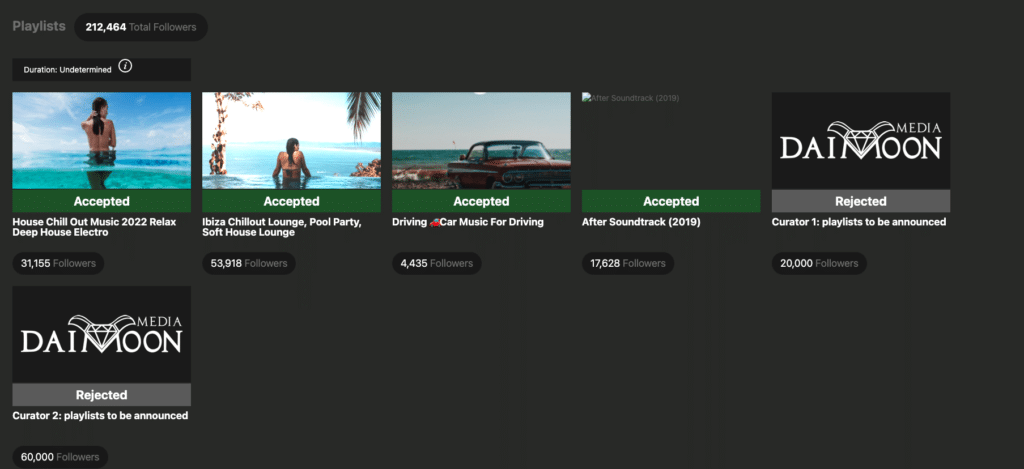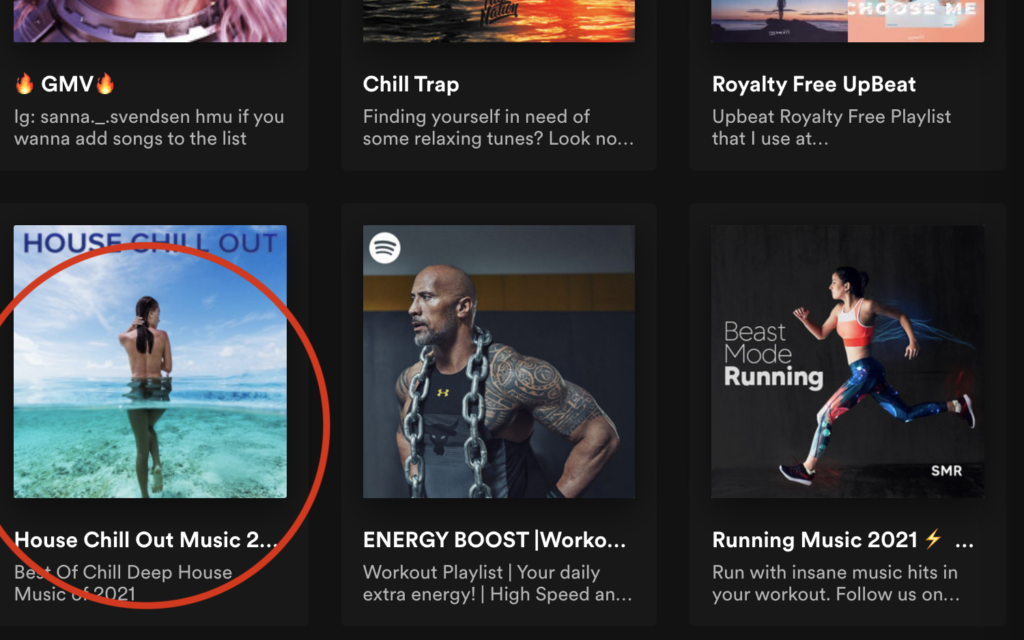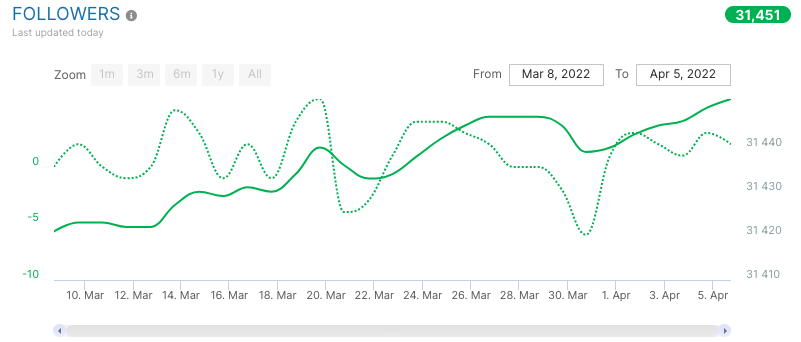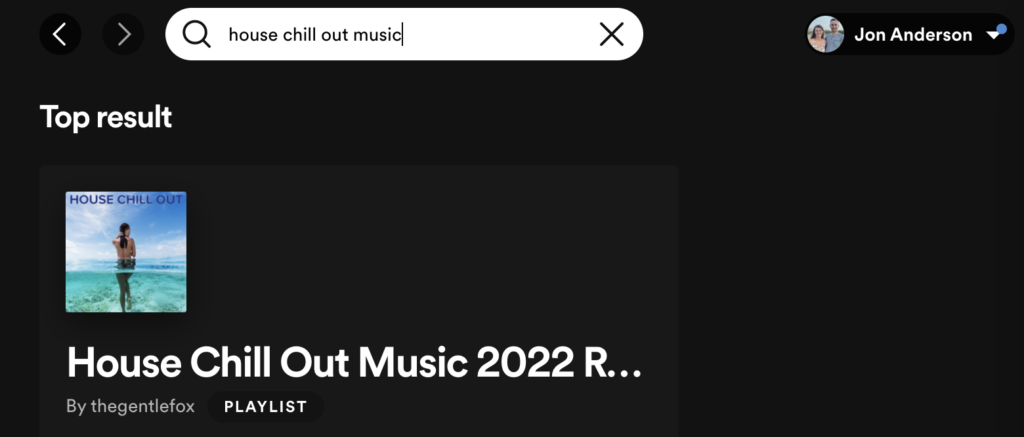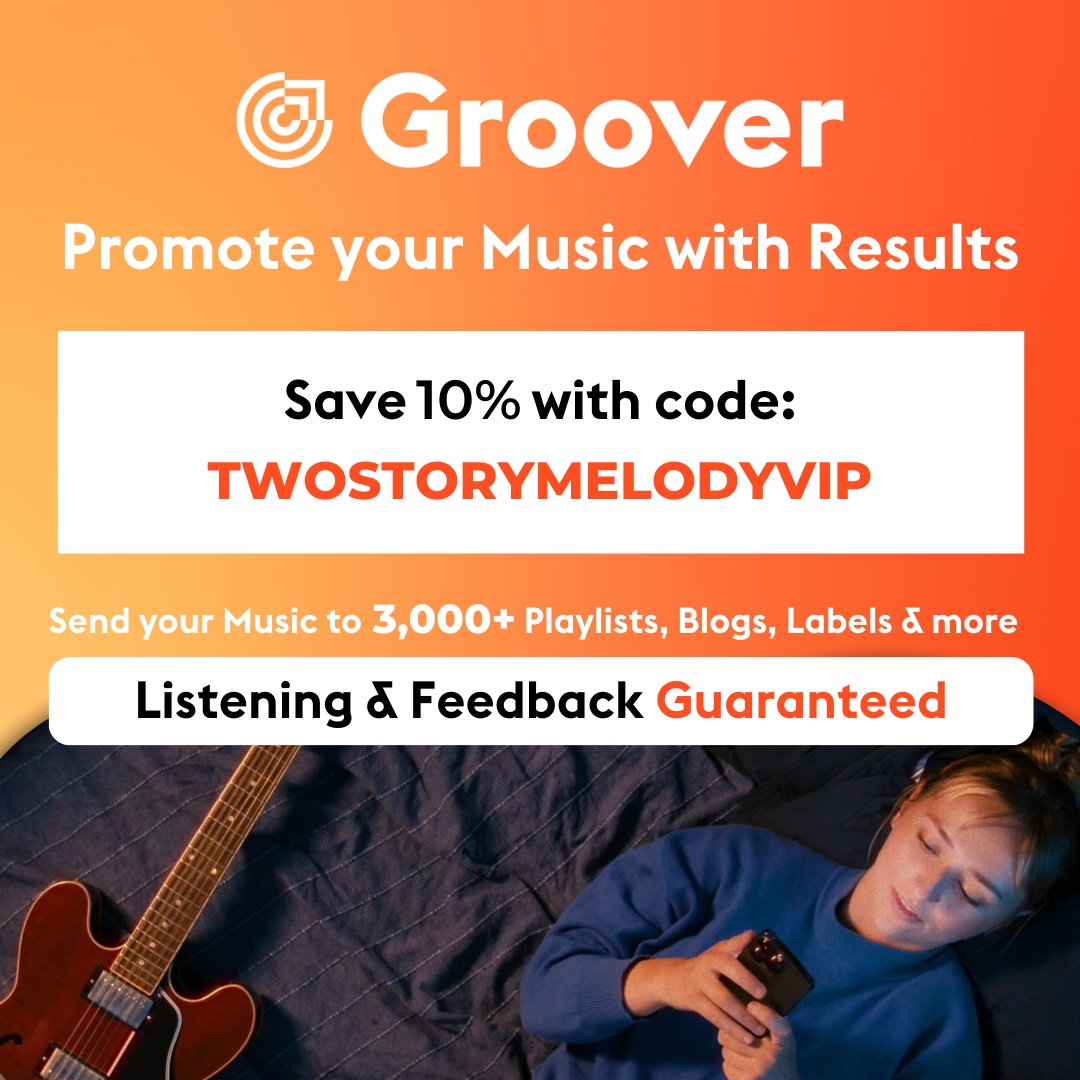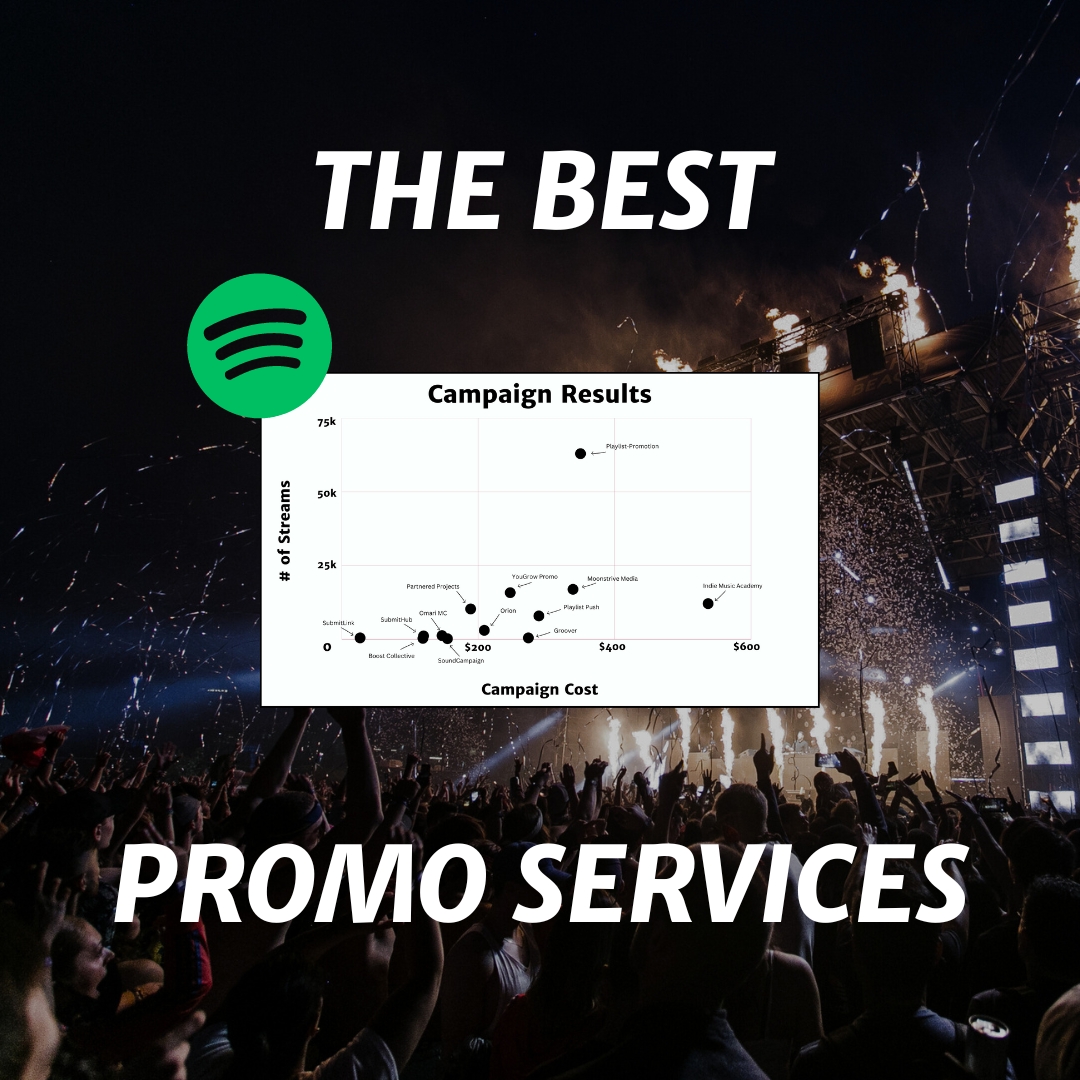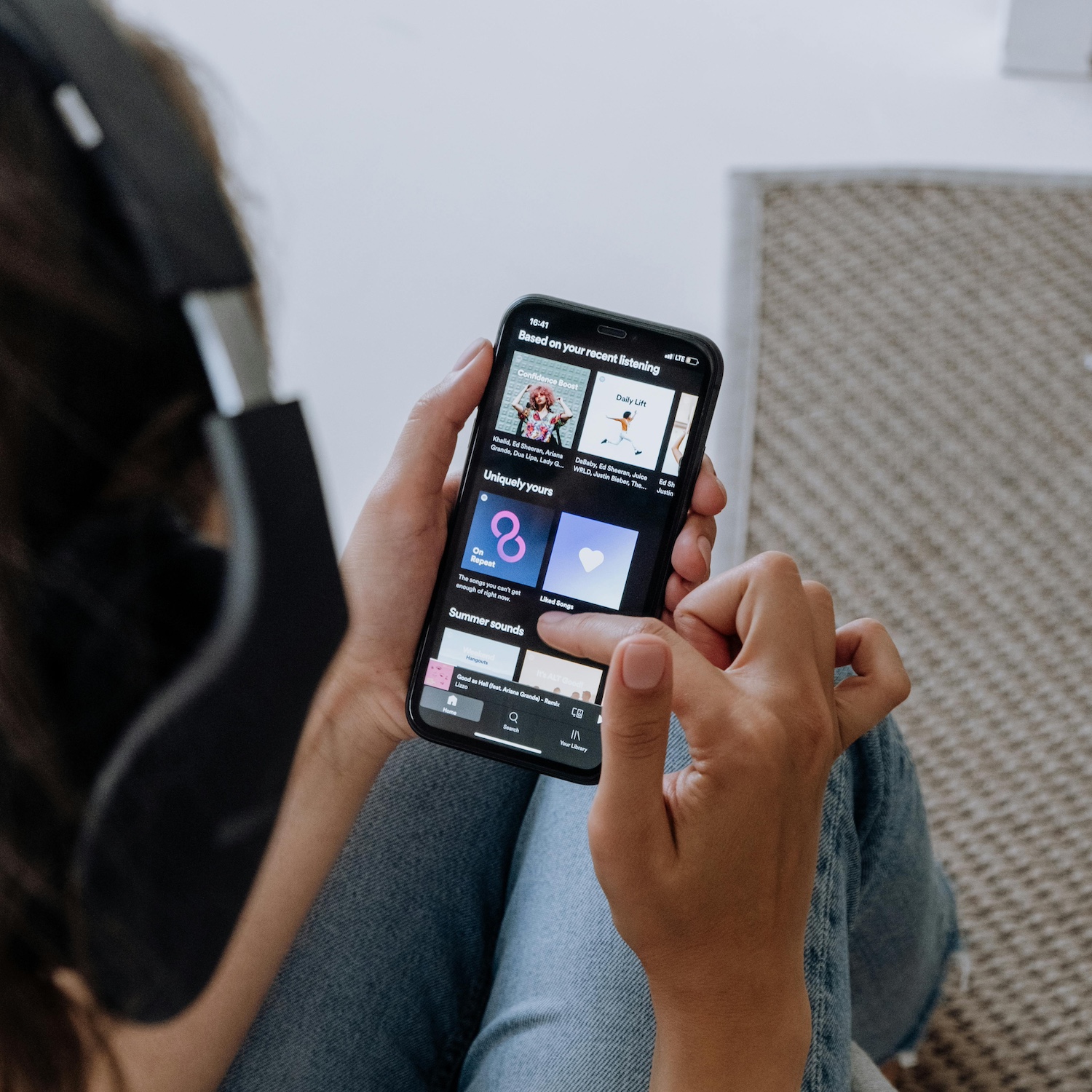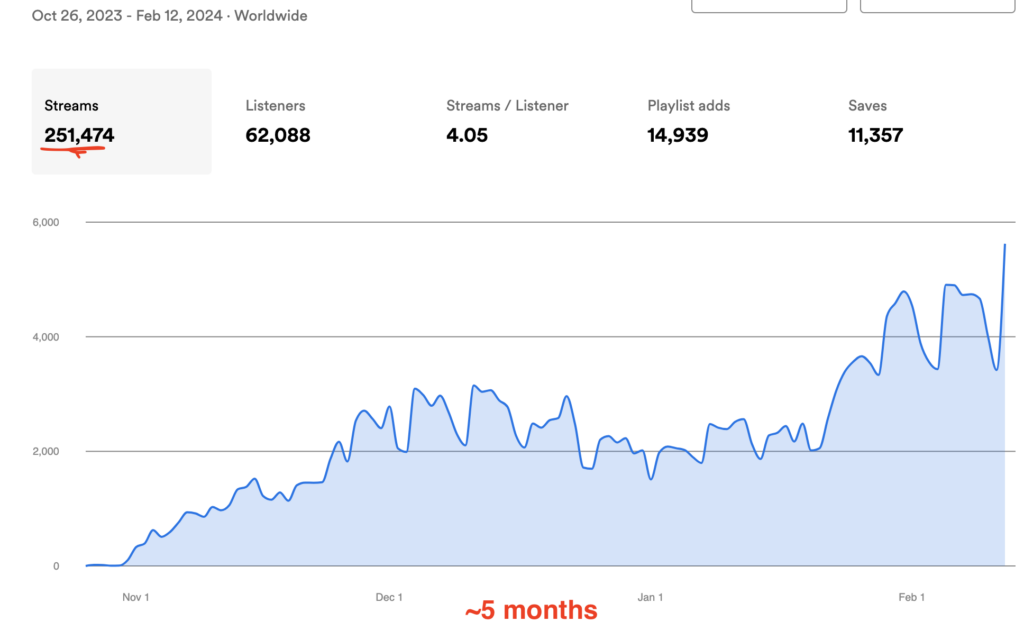Is Daimoon Media legit?
I’m going to break everything down in more detail below. For now, my short answer is that, yes, they’re legit.
Based on a trial review I ran with them for an electronic-pop artist, the team at Daimoon was able to generate ~30,000 streams over the course of three months, with placements on six playlists totaling around 200,000 followers. Based on my analysis (more on this later), the placements they earned were on legitimate lists – meaning not-bot-built – and generated real streams.
Now, I don’t recommend Daimoon Media for every artist. Based on my experience, they’re best for artists who are interested in growing an international audience, and they’re potentially best suited for artists who are making rap, electronic, or pop music (rather than, say, organic folk or jazz).
But I am confident in recommending Daimoon for artists in those genres who want to build an international following. If that’s you, here’s the link to try a campaign:
Click here to try a promo campaign with Daimoon Media
Disclaimer: That’s an affiliate link. Because, yes, I’ve vetted these guys personally, and yes, I think they’re legit.
“Eh of course you’re going to say they’re legit if you’re an affiliate,” you say, spitting chewing tobacco juice on the floor and shaking your fist at your screen. “Why should I trust you, bud?”
Fair question, bud, although it’s a little weird that you’re chewing tobacco while reading this. I’ll do my best to give you a fair answer via this honest review.
Let’s get into it.
The backstory on my Daimoon Media playlist pitching campaign
(Skip this section if you just want to hear more about the results. But if you like mildly interesting stories, read on.)
A couple of years ago, my website (Two Story Melody, which you’re now reading) published an article titled “The 12 Best Spotify Promotion Services”.
Then everything blew up.
That article started ranking well on Google like the first week it was published.
I write a lot of articles and that rarely happens. I was kind of pumped.
But, immediately, I started getting 1) a bunch of angry comments from people who disagreed with my list, 2) a bunch of spam comments informing me of the best locations to purchase generic medications in bulk, and 3) a bunch of requests from people who wanted their companies added to the list.
At first I was just kind of taken aback (I mean who knew ED pills were so affordable?). But, eventually, I realized that this was an awesome opportunity. Because, in addition to Two Story Melody, I also run Two Story Media, a boutique PR firm for indie artists.
And most of the artists I work with at Two Story Media want Spotify streams in addition to press coverage.
I realized that, thanks to the fact that a bunch of playlist pitching services were asking me to write about them, I had the unique chance to test a bunch of these services for free.
Still, I didn’t.
Because, let’s be honest: Like 80% of Spotify promo companies look really sketchy at first glance. Virtually every one of them promises “real streams!”, but then back up their promises with weird stock photos, clearly misleading copy, and kitschy “Buy Now” buttons that look like boldly colored black holes for money.
So, I determined that I would try some services – but also that I’d be selective and only work with firms that made a good first impression, in order to reduce the risks to my artists.
Luka from Daimoon Media made a good first impression.
First, he connected with me on LinkedIn, which is a classic business-networking move. Then he sent me a nice email, part of which included this:
The line that caught my eye was “worked with 6,500 artists.” To be honest, I haven’t verified that number, but at face value, it’s a pretty strong credibility booster.
My reply back:
Why am I showing you all of this?
Two reasons:
First, I just like to be as transparent as possible in these reviews. I think it’s probably interesting for artists to see behind the scenes into what playlist pitching companies like Daimoon Media are doing to get publicity, and to see how blogs and reviewers (like myself) engage with these companies. And I want to note that the campaign I ran with Daimoon was free, with incentive for them to perform well (although there was no promise that I’d add them to my list or write a review). Their team explicitly told me that if I did decide to write anything, they’d want it to be totally genuine based on my experience.
Second, I want to point out (as a humble-brag) that I’ve tried literally a dozen of these companies and have spoken to even more about how their processes function. As a result, I think I have as good an idea as anyone in the industry as to how playlist pitching companies actually work – and I think I’m a fairly credible source when it comes to offering an evaluation of a Spotify promo company’s performance.
But enough about me. Let’s get into the data so you can make a decision.

FREE RESOURCE 👇
How to spot fake playlists
These four signs show that a playlist is built with bots – before you’re placed on it.
Get the guide to stay safe, avoid scams, and go after real streams.
The results of my Daimoon Media promotion
As I mentioned at the top of this article, I asked Luka if the Daimoon Media team could run a campaign for an electronic-pop track. He said they definitely could, and I got a nice little email letting me know that the campaign had been confirmed:
It’s an automated email, so it’s not that personal. But still – you’d be surprised / depressed to know how bad some promo companies are at communicating, so I was immediately encouraged.
Things went pretty well pretty quickly.
Here’s the next email I got, literally one day after my campaign started: I got another email exactly a week later, letting me know that the campaign had wrapped.
I got another email exactly a week later, letting me know that the campaign had wrapped.
Again, our track was placed in six playlists totaling a little over 200,000 followers. As best as we could tell (and admittedly, the data is a little bit messy because our artist was doing promotions for multiple songs at once), over the course of about three months the Daimoon Media campaign generated about 30,000 streams – the track started around 110,000 and reached around 140,000, driven by those playlists.
One kind of cool thing: Daimoon Media has a portal where you can see (kind of) who you’ve been pitched to and which playlists have accepted or declined you.
Here’s what that looks like:
In terms of transparency, I’d say this is two steps down from SubmitHub (which is almost too transparent ha) and one step down from Playlist Push. There’s no curator feedback, so you don’t know why they made the decisions they did, and for a couple playlists, we can’t even see who the curator was who rejected us, which is a little weird.
But still – this portal is a kind-of-cool feature that lets you easily track which lists you’ve been placed on, and you can click through to each playlist right from this page. There are a bunch of services that don’t make things this easy.
How do I know the results were legit?
I know, I know – you’re still chomping on your chewing tobacco and shaking your fist, getting ready to say something like “But what if all of those followers and streams are BOTS, bud!?!?”
Again, this is a fair question, bud (although you really should stop chewing tobacco).
Here are a few things that might set your mind at ease.
1. The playlists we were placed on drove a reasonable number of streams per follower.
Bot lists usually drive a ton of streams or they drive virtually zero streams. We got 30,000 streams from about 200,000 followers. I’ve seen lists with higher engagement, but this is a pretty standard, natural ratio.
2. The playlists we were placed on showed up in our artist’s “Discovered on” section.
If you get placed on a playlist that supposedly has a bunch of followers and it doesn’t show up on your “Discovered on” page, that’s a pretty good sign that the list isn’t generating any streams and a flag that it might be built with bots.
The Daimoon Media lists did appear on that section, which is a good thing.
(If you scroll back up you’ll see that this playlist was one of the ones in Daimoon’s portal.)
3. The playlists we were placed on checked out well in Chartmetric.
Chartmetric is a streaming analytics platform that offers a bunch of data on artists, songs, and playlists. Here’s what the growth curve looks like for that “House Chill Out” playlist based on their data:
Again, this is a pretty natural growth curve.
The biggest change in followers is six in one day; on playlists with fake followers, you’ll see much bigger jumps, because bots tend to get added and deleted in droves.
It’s also nice that the trajectory of growth is generally upward. Growth isn’t the biggest deal, but it is indicative of list health.
4. The playlists we were placed on perform well in Spotify search results.
For example, here’s that playlist again, showing up first for its main keyword:
This is a good sign on two levels. First, Spotify tends to dampen the reach of playlists that are sketchy. Second, Spotify search is a real way that real users find playlists, which indicates that the playlist’s growth is natural.
One way I’ve heard this point described is that not all legitimate playlists are built through Spotify search, but all playlists built through Spotify search are legit.
To recap: Yes, despite what I’ve read in the six one-star reviews for Daimoon Media on Trust Pilot, I think the results from our campaign with them were legit. (They’re overall a 4.3 on Trust Pilot, by the way, which is pretty solid.)
Final notes on our Daimoon Media Spotify promotion
Let’s close this out with a few caveats on Daimoon Media, two of which are same caveats that I offered at the beginning:
First, based on the data we saw from our campaign, a lot of the streams are international (and by that I mean not based in the US). As I’ve just spent a bunch of paragraphs proving, this doesn’t mean those streams aren’t legit – it just means that they’re from real people around the globe.
Honestly, this makes sense, because Daimoon Media is based in the Netherlands, as you’ll see if you scroll to the bottom of their site. However, it might give US-based artists pause, especially if you’re looking to build an audience for touring (although it’s also important to note that all of our placements were on English-language lists).
Second, playlist services change all the time. This isn’t specific to Daimoon Media, but I want to note it.
I’ve written about this before, but the long-and-short of it is that the networks these companies use are highly variable; playlists change all the time and playlist curators start and stop all the time. There’s a ton of turnover.
The good companies (and I think Daimoon Media is one of the good ones) have systems in place to manage change and keep their lists healthy – but still, the truth is that outcomes vary because the world of Spotify playlists is always in flux. My artist got 30,000 streams, but you might have different results.
Third, I think Daimoon Media is less ideal for acoustic / folk / experimental artists, and more ideal for artists in pop, rap, and electronic genres.
Luka and their team might not fully agree, but based on Daimoon’s artist testimonials and the lists we were placed in, I think it’s probably true that they best serve those kinds of artists.
But hey, that’s a lot artists.
If that’s you – if you’re a rap, pop, or electronic artist looking to build a global audience via real Spotify streams – then I’d say Daimoon Media is worth a shot.
They’re good communicators. They work fast. And yes, they get real results.
Here’s the link again if you want to run a campaign.
And whether you do or not, here’s wishing you the best as you make and market your music. It matters, whether you get a million streams or not.
Thanks for reading, bud, and good luck.

